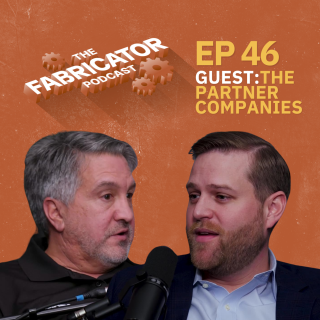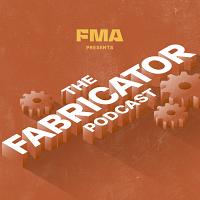The shifting manufacturing landscape with The Partner Companies
In this episode, Christian Streu, CFO of The Partner Companies, and Charles Cohen, President of FotoFab, join The Fabricator Podcast to talk about the growing trend of mergers and acquisitions in manufacturing. They discuss the evolution of Chicago-based The Partner Companies and how smaller manufacturing and fabrication businesses can benefit from being part of a larger organization.
The Partner Companies was formed in 1997 by founders Dan Brumlik and Scott Bekemeyer with a focus to bring together a strategic network of specialty manufacturers serving the aerospace, defense, energy, medical, technology, automotive, and telecom industries.
They also touch on the challenges of running multiple companies within one fold, the importance of near-shoring, and the future of manufacturing in North America. The episode concludes with a discussion on the recruitment of young talent into the industry and the exciting opportunities in the clean energy sector.
At the top, a mention of a Yugo leads to a conversation about first cars, from a 1966 Ford Galaxy to a 1989 Chevy Nova to the ultimate latch-key kid car, a 1987 Chevy Beretta.
Email us at podcast@fmamfg.org with any comments, questions, or suggestions. Learn more about podcast sponsorship opportunities.
In This Episode
Learn more about the 2024 FMA Annual Meeting in Florida.
Learn more about scholarship applications are now open for FMA's Nuts, Bolts, & Thingamajigs Foundation.
Check out more about The Partner Companies.
ABOUT THE FABRICATOR PODCAST
The Fabricator Podcast brings you conversations with people in manufacturing who make things out of metal. We speak with manufacturers, metal fabricators, welders, job shop owners, small business entrepreneurs, artists, marketers, educators, and more. Host Dan Davis also goes beyond discussing just manufacturing and the skilled trades, and chats about pop culture, current events, food, music, movies, comedy, and, of course, robots. The Fabricator Podcast is presented by the Fabricators and Manufacturers Association.
We shape the conversation around metal.
Host: Dan Davis
Producer/Editor: Gareth Sleger
Video Producer/Editor: Brandon Geier
Ad writer/spokesperson/social media: Sara Spring
Additional video editing: Dana Wiker
Graphics: Billy Kulpa
Marketing support: Elizabeth Gavin, Mary Diamond, Pat Simon
Sales support: Andy Flando, Amy Hudson
Web support: Mike Owens, Jared Carlow
Additional support: Ed Youdell, Maurine Semevolos, Lincoln Brunner, Tim Heston, Rafael Guerrero, Josh Welton, Darla Welton, Amanda Carlson-Hicks, Callie Check, Rick Lehnhardt, Judy Steinbach.
Where to listen to The Fabricator Podcast:
Follow The FABRICATOR:
- YouTube
TRANSCRIPT
Dan Davis: We used to have conversations about, "Oh, did you realize the part of that table was manufactured by a company down the road?" And now you're like, "Do you realize you're able to surf that website on your phone? Because fabricators have helped build the infrastructure to support all that connectivity." So yeah, next time you're looking at your funny video about furry cats or something, thank your local fabricator.
Lincoln Brunner: Speak for yourself, Daniel.
Charles Cohen: While you're driving your Yugo.
Dan Davis: Right, like, "There you go."
Lincoln Brunner: We're not living in the past around here. Don't get us wrong.
Dan Davis: Nope. Now we're hitting the groove. Everybody's joining us.
Sara Spring: Discover your path to leadership excellence at the FMA annual meeting. February twenty-seventh to the twenty-ninth in Clearwater, Florida. This exclusive event offers a unique opportunity to connect with prominent figures in the fabrication and metals industries, enabling the exchange of ideas, collaborative solutions to business challenges, and the cultivation of strategic relationships. Plot your course for success in 2024 and Beyond by attending the FMA annual meeting. Visit FMAMFG.org for all the details.
Dan Davis: Hello, Dan Davis from the Fabricator and Lincoln Brunner, also from the Fabricator.
Lincoln Brunner: Good afternoon.
Dan Davis: From Pipe Journal.
Lincoln Brunner: That's right.
Dan Davis: How are you?
Lincoln Brunner: I'm great.
Dan Davis: Thanks for joining us today. We have a good conversation coming up with Christian Streu, Chief Financial Officer of The Partner Companies. They are a large company made up of smaller and mid-sized fab and machine shops.
Lincoln Brunner: And from FotoFab, we have Charles Cohen.
Dan Davis: Correct. President, and they're company specializing in photo etching, right on Belmont Avenue in the city of Chicago. But during our conversation, we actually touched upon, I don't even know how we got to the point of the conversation, but a reference was made-
Gareth Sleger: A Yugo.
Dan Davis: Yeah. A reference was made to a Yugo and then to a Hyundai Accel early model 1980s.
Gareth Sleger: A Hyundai Pony.
Dan Davis: Hyundai Pony no the Accel-
Lincoln Brunner: Which you owned.
Dan Davis: ... that's correct.
Lincoln Brunner: Did you own a Pony?
Dan Davis: So this is going to evolve into a conversation about first cars, but when I was graduating high school, I was a lucky recipient of a car from my parents and my dad test drove a Hyundai Pony, or Accel or whatever it was back then that they were selling at Levis Hyundai, shout out for a dead automobile dealership. And he was not impressed at the time with the Hyundai. So I ended up with a two-seater Honda CRX, which I thoroughly enjoyed and collected many speeding tickets in. So thoroughly enjoyed that.
Lincoln Brunner: Apparently 30 miles an hour over the limit 40.
Dan Davis: Yeah. That was coming out of New Orleans on a late, well, it's not Sunday morning. It was more Monday morning. Sunday into Monday. I think it was St. James Parish doing 95 in a 55.
Gareth Sleger: I could see that thing ripping up 90 miles per hour.
Dan Davis: Policeman goes, "What exactly were you doing, doing 95?" I'm like, "I just want to go home, sir."
Lincoln Brunner: "Well, you're not going home just yet, son."
Dan Davis: I was able to avoid a charge of criminal... What they used to call it?
Gareth Sleger: Reckless driving.
Dan Davis: Yeah, driving criminally insane or something like that. I think there's stuff on the books with that charge on there.
Gareth Sleger: What year was this?
Dan Davis: Huh?
Gareth Sleger: What year was this?
Dan Davis: Oh, this, so I hadn't graduated yet, so it's probably about '88.
Gareth Sleger: Oh yeah, there were no laws back then.
Dan Davis: Oh, in St. James Parish there was. To this day, same guy's probably still waiting at the end of the bridge coming into Laplace, and I don't think that's St. James, but whatever. So anyway, other first cars that we had, you mentioned yours. You actually-
Lincoln Brunner: I had a-
Gareth Sleger: He's the winner.
Lincoln Brunner: I had a great first car. My father was kind enough to purchase it for $2,000, right around 1988. It was a 1966 Ford Galaxy with a 352 V8, could seat three or four friends comfortably in the back seat, which we made ample use of on the way back in Ford's...
Dan Davis: That looks like something you roll up on a bunch of social zone and just kick their asses.
Gareth Sleger: Listening to what we described as doo-wop.
Lincoln Brunner: Doo-wop, yes. Little...
Dan Davis: It's a Lincoln, soda pop, and Pony Boy.
Lincoln Brunner: Frankie Valli and The Four Seasons going on.
Gareth Sleger: Lincoln had a roll of cigarettes rolled up in his sleve.
Lincoln Brunner: That's right. "Hey, you guys want a drag race or something?"
Gareth Sleger: Why are you snapping at me?
Lincoln Brunner: What are you doing? It was a great car, it was fun.
Dan Davis: That's pretty sharp.
Lincoln Brunner: Yeah, that's what-
Dan Davis: They're talking about for you, Gareth.
Gareth Sleger: I had a 1989 Chevy Nova.
Dan Davis: Yeah.
Lincoln Brunner: Wow.
Dan Davis: Okay.
Gareth Sleger: It didn't last a whole year I had it. It died in the middle of the winter on the way to school once.
Lincoln Brunner: At Boylan High School.
Dan Davis: Like a slow death like...
Gareth Sleger: It stopped at a stoplight and just...Went to sleep forever.
Lincoln Brunner: It became a ghost.
Gareth Sleger: And my best friend drove right by me honking and laughing. I was like, "Thanks, dude." He turned back around after he stopped at Hardee's to get some hash browns.
Dan Davis: That's what friends are for.
Gareth Sleger: But that car was at a little tank. I was telling Brandon before this that.
Lincoln Brunner: Before it died.
Gareth Sleger: I once was turning left, got rear-ended by a small pickup truck and crunched the entire front end of that pickup truck, my car unscathed. I had like a heavy-duty, like rubberized bumper cover in the back that just-
Lincoln Brunner: It's a shame that it died.
Gareth Sleger: ... absorbed all of it. Yeah, I know.
Dan Davis: It's a shame. We should have gone and demolition derby.
Lincoln Brunner: It was like the Homer Simpson of cars, you just beat it to death and suffers no ill effects.
Gareth Sleger: It was a great little car.
Dan Davis: Wait... We talking about for you. Oh, sorry.
Gareth Sleger: Oh, I also got voted worst car my senior year.
Dan Davis: Jeez, that's cold, man.
Lincoln Brunner: Oh, it died. Yeah.
Gareth Sleger: But since the car didn't exist, I had to hold up a hubcap for the picture.
Lincoln Brunner: That's even better.
Gareth Sleger: Yeah.
Lincoln Brunner: Even better.
Gareth Sleger: I like Brandon's.
Brandon Geier: Yeah. I had a 1987 Chevy Beretta, had it for about three months before I rear-ended a Cadillac and my car didn't make it through it.
Dan Davis: So you laughed earlier when Gareth pulled up a picture of the Beretta and it says the website called it a classic latch-key kid car.
Lincoln Brunner: Were you a latch-key kid?
Dan Davis: You carried elaborate.
Brandon Geier: Very much so.
Lincoln Brunner: Were you?
Brandon Geier: Actually, I had the conversation with my mom this morning about being a latch-key kid.
Dan Davis: There you go.
Gareth Sleger: Ironic.
Dan Davis: There you go. Yes, a Beretta was a very much a familiar site.
Lincoln Brunner: Oh yeah. It was a-
Dan Davis: It's the nineties, right? Late nineties.
Gareth Sleger: Oh yeah.
Lincoln Brunner: It's an affordable car.
Brandon Geier: Early two thousands.
Gareth Sleger: Okay. Now that I look at it, that just says nineties.
Lincoln Brunner: It says nineties. Well, it says affordable nineties, right? I mean a lot of people had them it was a great middle-class car.
Gareth Sleger: You get it for 10 K back then.
Lincoln Brunner: Yeah.
Dan Davis: So now that'll get you a 1995 Corolla.
Lincoln Brunner: Yeah.
Dan Davis: With 450,000 miles on it.
Lincoln Brunner: Don't knock it.
Dan Davis: All right. Well, I guess we consider Lincoln the winner in this contest.
Lincoln Brunner: In this one.
Dan Davis: Yes.
Lincoln Brunner: Finally, I won something.
Gareth Sleger: Only because he'll beat us up if we don't say that. He'll get his brass knuckles out.
Dan Davis: Be cool.
Lincoln Brunner: Be cool, man.
Dan Davis: I think you'll enjoy this conversation. Stay tuned for our chat with The Partner Companies.
Sara Spring: It's that time of year again. Time for all students pursuing a manufacturing related degree in a two or four year program to apply for a scholarship from FMA's Foundation, Nuts, Bolts, and Thingamajigs. Eligible students can receive up to $3,500 per year for their program. Applications for fall 2024 are being accepted until March 31st. Get all the details and apply today at FMAMFG.org. And now back to the episode.
Dan Davis: Today's guest I think is going to be an interesting conversation. We have Christian Streu, who is chief financial officer of the partner companies and within the partner companies is a company called Fotofab, and we have Charles Cohen who is the leader of that organization. And today we're going to... We've spent a lot of time on the podcast talking with small individual fabricators and it's always a good conversations-
Lincoln Brunner: It's been fun-
Dan Davis: ... to talk about-
Lincoln Brunner: ... it's been a lot of fun.
Dan Davis: ... people who are building things. Well, these folks have built a lot. So it's almost the other end of the spectrum. A large company with a large upside, but still made up of smaller to mid sized companies who are probably very familiar to a lot of our audience, so it's going to be a fun conversation. Christian, can you give our audience an idea of just who the partner companies are and the history behind it?
Christian Streu: Sure. Yeah, of course, and thanks for having us here.
Dan Davis: Oh, no problem.
Lincoln Brunner: Our pleasure. Thank you.
Christian Streu: So the partner company was formed in 2010. It was co-founded by Dan Brumlik and Scott Beckmeyer, and our first acquisition was Fotofab here in Chicago, which is run by Charlie Cohen here to my left. So it'll be great to hear some of his perspective of those very early days. Just a little bit of background on myself, I did join the company in 2020 coming from the capital side of the world, although I've been working with Dan and Scott and Charlie for about coming up on 15 years here, providing financing from the beginning and then flipping over to the other side of the table.
Dan Davis: So you had worked with them as a banker capacity and then came over.
Christian Streu: Yeah, exactly right. So TPC's a global advanced manufacturer consisting, as you mentioned, of multi-site capabilities. We have got 10 individual brands that we're currently managing and 13 plants, 10 of which are here in the US but we also have footprint in the UK, China, and most recently in Mexico, which has been an exciting investment thesis for us as entrepreneurs become more and more important to the world in TPC and manufacturing.
Lincoln Brunner: And why particularly Mexico at this juncture?
Christian Streu: Well, we learned something early with Fotofab, it's easier to sell our customers something that they want rather than what we want to sell. And our customers told us in the overseas, particularly far east and China manufacturing plants, we want to near shore and simplify the supply chain, so that was something we reacted with.
Lincoln Brunner: Very good.
Dan Davis: And how did Fotofab become the first investment for the partner companies?
Christian Streu: Well, that's a great question to ask Charlie, he had ringside seats.
Charles Cohen: There you go. So Dan Brumlik and Scott Beckmeyer were involved with Fotofab before the acquisition for a few years with the goal of buying Fotofab, then working with Fotofab directly in a capacity of sales marketing role. Eventually bought Fotofab in 2010 with Dan Scott and some of our current investors were involved then and are involved in a much larger way right now. So it just started with Dan Scott being very entrepreneurial, wanted to buy some niche manufacturing companies and Fotofab was a great company to start with.
Dan Davis: Yeah. So in a general sense, and I think we're going to talk about context against which the partner companies and Fotofab is currently operating with in terms of the manufacturing environment. But currently working on a story where we're talking about Gen Z entering the industry and the juxtaposition of that conversation, are the older people making room for them? Obviously there's a changing of the guard, I think just in terms of generational terms, not only manufacturing but in society. With people, company owners looking to get out, has that created an opportunity for the partner companies to go find companies similar to Fotofab? Not necessarily that the context of when that deal took place in 2010 and before, but is it an environment that is ripe for companies like maybe the partner companies to consolidate and bring together manufacturing capabilities?
Christian Streu: Certainly. So that informs our M&A strategy, which we're certainly a highly acquisitive company. We tend to buy two to three companies a year, and most of our sellers are your viewership. So it's closely held or family owned entrepreneurs who've built a business, great business over 30, 40 years and either looking for that monetary exit or just don't have a clear succession option. And really, there's two primary paths there, if you don't want to shut the business down, which obviously is the unlikely scenario, it's private equity or groups like ours. So when we enter those conversations, the first thing that we tell sellers is that we're not private equity, we're a long-term manufacturing platform, we buy companies for their teams. We look to invest in those teams and really enable them to grow beyond maybe where they're currently at by bringing capital and operational expertise, HR expertise, et cetera, to really scale and grow those businesses. But we have no intent to sell those companies over a three to five year period like a typical private equity firm would.
Lincoln Brunner: Right, you're not-
Charles Cohen: And we have history behind that, so in selling that, look at these other companies, they're still operational, management staff is the same. So we're saying it and proving it.
Lincoln Brunner: You've got street cred to prove what you're saying.
Charles Cohen: Exactly.
Lincoln Brunner: So I'm curious about the makeup of the companies that you would ideally target for an acquisition. What sort of capabilities do they have? What sort of markets are they serving? I mean, how do you strategize that?
Christian Streu: Yeah, so I referenced some early learnings that the organization got through our initial acquisition with Fotofab, is that it's easier to sell customers what they want rather than what we got. So our customers inform our acquisition strategy to a large degree. They tell us what capabilities they're either having a hard time sourcing, maybe it's an unreliable market. And we try to bring more efficiency to that market by bringing it inside the TPC house and continue to cross sell that way.
Lincoln Brunner: I like that.
Dan Davis: Can you describe from Fotofab's perspective how the existence within the partner company's family has evolved? What it would've been, some of the benefits, maybe some of the challenges?
Charles Cohen: Yeah, it's a great question because the evolution has been substantial, especially in the last few years with the acceleration of acquisitions. Going back five years ago, 10 years ago, we were all on an island running independently. Now there's these companies, we get together, we talk, we have multiple companies dealing in the same market space, same operational type manufacturing process. So we're leveraging those, that knowledge, to improve. We have the TPC platform that has great knowledge like financing, HR operation that we rely on. So we've changed from small to a much larger acting company and we've improved because of that.
Lincoln Brunner: How do you go about maximizing what we were talking about before, that complementary nature of the relationships within the company. How do you go about maintaining that and maximizing that?
Christian Streu: So let me take first cut at that by first saying that we do remain pretty end market disciplined. So we break it down into four key categories, A&D, aerospace and defense, medical, clean energy and technology. So that creates a natural synergy in the types of products that we're selling. And then extrapolate that out over Fortune 100, Fortune 500 companies that are our customers, their product and engineering needs are vast and complex. So the more ideas and more solutions that we can bring into a room to an engineering team, the more valuable of a partner we are and hopefully unlock those opportunities to continue to cross-sell across the platform.
Charles Cohen: Yeah, and just as an example, we were talking about a customer we have, I was talking with a customer and telling about our product and they put a part on a table saying, "Hey, what about this?" "Michael, I can't make that, but I have a company, one of my sister companies, that's their thing." So another advantage that we're taking care of and bringing all these companies together.
Lincoln Brunner: So the siblings are scratching each others backs a little bit better?
Charles Cohen: Quite a bit.
Dan Davis: Has that made it easier to kind of grow organically, just from a Fotofab perspective?
Charles Cohen: We become more important to our customers and we're able to give them more and not just... It's just not a one-way street, we're able to help them out.
Dan Davis: And not having to maybe make that investment yourself and trying to find square footage and then people to support that. Has it created pathways for maybe some of your employees to where the one location is not necessarily the ceiling, that they might have an opportunity to kind of grow elsewhere?
Charles Cohen: It's a challenge of a small company where you don't have those opportunities. You have a twenty-some year old wanting to grow and it's like, "Okay, I have this building here with 50 people in here. What do I see you doing in 10 years?" I'm not going to be here, but now there are opportunities and you can maybe talk about what we've seen with that."
Christian Streu: Yeah, absolutely. We're three years into this TPC branding coalescing idea, but already we have examples of bringing floor production managers to GM roles or as it relates to sort of site level financial professionals to Charlie's point where the ceiling may have been this one particular site. Now we have a larger organization in a way that they can contribute in ways that they haven't before. And those are two examples, but it sort of runs the whole gamut of being able to plug and play the best talent that we have into the opportunities that we're able to surface.
Dan Davis: What functions are centralized within TPC? Does each facility have a sales effort or is that kind of a centralized?
Christian Streu: Each company does have a sales effort or each site has a sales effort. We also have coordinated sales efforts that come out of the platform as well. So those are coordinated by our co-CEOs, certainly. We also have group presidents that run sub-portfolios of TPC, that the more that we can create that connective tissue and increase the communication of who's working on what opportunities, the more that we can unlock again, those cross-sell opportunities.
Lincoln Brunner: I like that concept of connective tissue, especially when it comes to business strategy, and I'm curious about how your international companies play off of your core here in the United States. I mean, how are you working with them to increase business for both?
Christian Streu: So certainly near-shoring is a very strong tailwind for that.
Lincoln Brunner: Absolutely, yeah.
Christian Streu: When you have a sales team and boots on the ground in market, in the three major markets, we do sell obviously US for US, and Europe for Europe and also China for China, which is a somewhat unique capability for a US-based company.
Lincoln Brunner: Yeah, talk about that.
Christian Streu: So it's interesting, it's a growing segment of our Suzhou-based plant. And we're in technologies such as medical and technology in obviously one of the largest economies there is in the world.
Lincoln Brunner: Second largest in the world, yeah.
Christian Streu: So that's been a very exciting path we've continued to invest in as well.
Lincoln Brunner: I'm curious in that regard, if we look at Fotofab, what sort of markets are you able to tap into that you might not have, not being part of TPC?
Charles Cohen: We've been in quite a bit of markets, but it allows credibility because what happens is we're in markets and we're talking about Fotofab capabilities. As I mentioned, we have more capabilities, but we also have backup capabilities if we were to have some environmental or just crisis issues within the plant. So we just allow credibility of a much larger company dealing with all aspects of the business because we have the backing of TPC and the knowledge of TPC, dealing with environmental issues, HR issues, and we're just much more of a powerful, more intelligent company.
Lincoln Brunner: Good point.
Dan Davis: Can you describe what exactly Fotofab does? Because covered photo etching a little bit in the fabricator, but it is really unique in the sense of we don't do it regularly coverage. And also touch upon where that redundancy may exist within the family of companies to back all up.
Charles Cohen: Certainly. It's certainly a unique process and when we talk with customers, we're not saying, "Hey, we're the best chemical etcher out there." We're explaining what chemical etching is, engineers, it's just not taught, it's not in the book.
Dan Davis: Why not?
Charles Cohen: Engineers aren't familiar with it. It's a niche process. I'm guessing there's roughly 10, 12 domestic manufacturers in the country.
Dan Davis: The heck few.
Charles Cohen: Some of the large companies, large electronic companies, they'll have in-house. Some of the aerospace companies will have in-house as well, but typically smaller companies that are dealing with manufacturing chemical etch.
Dan Davis: And how's that work, real thin?
Charles Cohen: Very thin. We can go down to triple O2, max is an eighth of an inch. And what we're doing is we're coating the metal with a light-sensitive film, and we're exposing to light to harden where it stays soft we're removing, have exposed metal, put it to an acid bath, acid eats away, hold very tight tolerances and eats away from the top and the bottom. And you have a feature, or you can do it from the top where you have just a purely etched feature versus a hole. Tight tolerance is very quick process.
Dan Davis: The genesis of it is very old, right?
Charles Cohen: Centuries. It goes back, if you go to the museums downtown, you go to the room with all the armor that's all chemically etched on the armor, they're using beeswax and different type of acids to do that. So it goes back centuries.
Lincoln Brunner: Isn't that fascinating?
Dan Davis: It is amazing how the legacy of this profession could go back centuries.
Christian Streu: It's changed quite a bit. Yeah.
Dan Davis: Imagine what one of those craftsmen from back in that day would occur if they wandered into a modern shop. So there's also other photo etching capabilities within TPC?
Christian Streu: Yeah. So Lincoln, you would ask about how do the companies coordinate? It's not just across the sales end of it. And photo etch is really a good example of how we do that. So Fotofab, for example, is really strong at rapid prototyping. You can go print a part in-
Charles Cohen: A day.
Christian Streu: A day.
Dan Davis: Wow.
Christian Streu: So we have that all the way at the development end, and then everything between that and our site in Milford, Massachusetts, PEI, which is doing tens of thousands of part runs. So we can take something from design to design for commercialization and scalability, and take that product all the way through its life cycle.
Charles Cohen: Additionally, different sites work with different materials. We have one site works with some exotics, molybdenum, tungsten, they specialize in that.
Lincoln Brunner: Okay, and what end-use markets is that for?
Charles Cohen: A lot of medical.
Lincoln Brunner: Okay. All right. Very cool.
Dan Davis: In products?
Charles Cohen: Mm-hmm. Medical devices. Some implantables as well.
Christian Streu: You didn't mention titanium, which is certainly a-
Charles Cohen: Aerospace.
Lincoln Brunner: That's a big one.
Christian Streu: Yeah, that's a focus of our investment in the last couple of years for sure. So titanium, the way that we use it goes into the hydrogen electrolyzer market. So the bipolar plates that are going into hydrogen electrolyzer technologies, which are enabling the hydrogen economy.
Dan Davis: It's so funny in the sense that here's the conversation about at the focus metal, but now you touch upon a segment you're serving, and for people who are not overly familiar with the trappings or the inner workings of new energy type developments, all I hear is electric and yet this is happening. So where's some of this activity taking place and is it the delivery companies that are involved with this? What are some of the motivators?
Christian Streu: Yeah. Well, so taking a zoomed out view first, it is a focus of incentive packages. The IRA is a particular one that comes to mind, the Inflation Reduction Act, that's a 370 billion program. A hundred billion dollars of that is earmarked for hydrogen generation for power purposes. So it's the largest, some of the largest companies in the world, a lot of energy companies certainly, but also engine manufacturers as they're looking towards eventually the sunset of fossil fuels and what's the replacement of that look like?
Dan Davis: Wow.
Charles Cohen: So the Rolls Royces of the world and GEs and-
Christian Streu: Can't wait to get a hydrogen powered Rolls Royce.
Charles Cohen: Yeah, that's right.
Lincoln Brunner: What would that look like?
Dan Davis: Yeah, just check that employee parking lot here. No...
Charles Cohen: Really.
Dan Davis: Let's just say bonuses are going to be good this year.
Charles Cohen: I didn't know they were going to be that good.
Dan Davis: You'll enjoy your restored Hugo. So from your perspective, it's coming from the banking world. I mean, you touch upon a lot of different industry segments. It's got to be interesting to be involved in so many areas, at the same time you have your focus, but you're dealing with this customer base that spans the gamut in terms of industries.
Christian Streu: Yeah. So no doubt about it. I mean, I think what attracted me first to banking and then to TPC is that each company has its own sort of way of ticking and has its own customer base that has its own unique characteristics. And sort of figuring out how that works and how we can bring value to those conversations, that's what wakes me up in the morning.
Lincoln Brunner: Well Charles, I'm interested to hear from your perspective at Fotofab, what are some things that you're excited about coming down the pike?
Charles Cohen: These new products, we're involved in... We talked about the different industries, electronics, defense, we see a lot of prototypes. So we see what companies are working towards.
Lincoln Brunner: All right, in the R&D space?
Charles Cohen: R&D space, so whether it's fuel cell or stuff going up into space. So we're seeing at the front end of that what other companies are working on.
Lincoln Brunner: Very good.
Charles Cohen: So it's fun.
Lincoln Brunner: Very good.
Christian Streu: So TPC has 2000 unique customers every year, and that's across that four industry vertical. So you can really start to get your finger on the pulse of where people are investing and where the industry's going just by, like I mentioned earlier, following the customer.
Lincoln Brunner: Right.
Dan Davis: So will TPC turn down business if a customer probably didn't fit those four industry segments?
Christian Streu: I'm not a sales guy, so my sales director would kill me if I said, "Yeah, of course."
Charles Cohen: There'd be after more criteria than that to turn them down.
Dan Davis: Exactly, because I guess maybe some of their parts might be similar to what you're doing.
Charles Cohen: Fotofab and some of the other etchers will also dab on decorative stuff as well. So one of my philosophies is that all companies started out small, in your proverbial garage, right?
Dan Davis: Yeah.
Charles Cohen: So I try not to turn away from those because you never know who's going to be the next very large company.
Dan Davis: How big is Fotofab now, employee wise?
Charles Cohen: We have roughly just under 50 employees.
Dan Davis: Wow. I mean, really that is kind of the sweet spot for the industry.
Lincoln Brunner: All on Belmont in Chicago.
Charles Cohen: We have two locations, one in Elk Grove just on the western part of O'Hare, and that's a full tool and dye shop. So we're making the blanks in Chicago via chemical etching and we're doing the forming in Elk Grove Village.
Dan Davis: The village of Elk Grove where one of the few villages that have actually sponsored a College Bowl. I think that was the Bahamas Bowl.
Gareth Sleger: They sponsored the Cubs too.
Dan Davis: Do they? Well, there you go.
Lincoln Brunner: That's right, as they should.
Dan Davis: The very aggressive suburbs of Chicago trying to get your business. So do the other companies within TPC reflect the size of Fotofab?
Christian Streu: Yeah. So I would say that the range is as small as 20 to as large as 300.
Dan Davis: Okay.
Christian Streu: So it's a pretty wide range, but that strike zone's really in that call it 50 to a hundred twenty-five employees per site.
Lincoln Brunner: Is that the kind of company that you're more than likely looking to acquire, that size of company?
Christian Streu: Yeah, exactly right. As we were talking about earlier, we acquire good companies. We're not turnaround guys, we acquire companies for the teams. So certainly there's with the average age of the company that we require is something like thirty-five or 40 years.
Dan Davis: Oh wow.
Lincoln Brunner: So proven players.
Christian Streu: Proven players, exactly right, but again, in that middle market sort of core manufacturing space.
Lincoln Brunner: Yeah.
Dan Davis: I mean, Lincoln asked the question about connective tissue and just looking through some of the players within TPC management, they do have legacy with some of the companies that have been brought into the fold. I mean, that's obviously something TPC's interested in, and keeping those people, those founders around.
Christian Streu: Yeah.
Charles Cohen: It's not a buy and burn and we don't have a bunch of people to put in.
Lincoln Brunner: Well, it would seem that people knowing that when you walk in the door, it would seem to engender a little bit more trust in you and maybe a little better conversation.
Charles Cohen: The track record's there.
Christian Streu: Right, exactly right. I mean, again, you think about the original entrepreneur who built this business, as Charlie said, from the garage, that brand to them it's not just a brand-
Lincoln Brunner: It's personal.
Christian Streu: That's their life. Yeah, it's their personal, it's personal to them. So the first thing we say is that, again, we're not private equity. We're going to keep the brand and we would like to hear who's still going to stick around and who on your team is in it for the long haul. Yeah.
Dan Davis: What is on the wish list in terms of maybe additional capabilities?
Christian Streu: Boy, I think anything that's going to touch that hydrogen economy right now is certainly on the wish list. So that comes with certain coatings technologies, gasketing. We haven't talked yet about our advanced assembly capabilities, but there's a lot of very complex assemblies that go into these systems. So certainly I think that that's going to be a focus in the near term.
Dan Davis: Who are some of those large players involved in that sector, can you say?
Christian Streu: Yeah, I think that if you look just sort of headlines-wise, the large players are companies like Cummins or Siemens.
Dan Davis: Okay. All right.
Christian Streu: Very large company.
Dan Davis: Some names we're familiar with.
Christian Streu: Yeah, household names.
Dan Davis: Wow, that's interesting.
Christian Streu: Plugged power.
Dan Davis: Yeah. Do you see other opportunities outside of that, that probably hold as a greater return perhaps?
Christian Streu: So certainly. So it's kind of fun, a lot of the technologies that we use have multiple end uses and our end use cases. So thinking about a hydrogen electrolyzer, the bipolar plate stack, that's where we are in the heart of it. Essentially what that looks like is a very complex thermal management device. We've been making thermal management devices for a long time. Fotofab being a perfect example of where we make those. You then extrapolate that across UPG, which is our plastics business, which focuses on primarily technology companies and rack-mounted servers and switches and utility-level technologies. As AI has continued to grow, thermal management continues to be a bigger piece of it. So we're taking learnings from the hydrogen economy and we're applying it to technology and AI. And it's kind of cool to the connective tissue comment to see how those technologies can service multiple end markets.
Dan Davis: Yeah.
Lincoln Brunner: Sure.
Dan Davis: I think I've gotten a little bit more familiar with that data center business in terms of even locally, there's some people involved and you really don't realize what's occurring around you because they just finished, I think the server farm out in DeKalb for Facebook. That's just for Facebook, the Amazon, Google, everybody's getting involved.
Lincoln Brunner: Just the sheer amount of heat, just physically that's generated by a farm like that I'm sure calls upon engineers to keep coming up with better solutions to that.
Christian Streu: Exactly right, and AI just cranks that dial in a way that the whole world hasn't seen before, right?
Dan Davis: Right, yeah.
Christian Streu: Oh my goodness.
Dan Davis: I mean, we used to have conversations about, "Oh, did you realize the part of that table was manufactured by company down the road?" And now you're like, "Do you realize you're able to surf that website on your phone because fabricators have helped build the infrastructure to support all that activity." So yeah, next time you're looking at your funny video about furry cats or something, thank your local fabricator.
Lincoln Brunner: Speak for yourself Daniel.
Charles Cohen: While you're driving your Yugo.
Dan Davis: Right, like, "There you go."
Lincoln Brunner: We're not living in the past around here, don't get us wrong.
Dan Davis: No, we're hitting the groove. Everybody's joining us. Are there challenges to your business that maybe don't affect stand alone?
Christian Streu: No, it's easy every day.
Lincoln Brunner: Why are we even talking about this?
Christian Streu: No, certainly. I think from a global perspective, the pandemic taught people, a lot of people, a lot of hard lessons about disinvestment in supply chain. So there was so much reinvestment in supply chain in the last couple of years. And I think that while, this is a viewpoint, but while we're probably not going to go all the way back to fully as disinvested, if you will, as pre-pandemic, we are starting to see that pendulum come back the other way. So if I was going to talk about a global trend that I think is challenging for the manufacturing market as a whole, that's been one of the more challenging ones on the sort of tail end of the Covid hangover.
Dan Davis: Yeah. Are your people within the organization getting as much face time as maybe they might have had with customers before the pandemic?
Christian Streu: Charlie, you'd be the best to answer that.
Dan Davis: Or is that even important nowadays with everyone's adopted Zoom and other digital technologies?
Charles Cohen: Yeah. Being in front of a customer is just ideal, that's the goal on the sales side of things. I would say it's improving, but you just go back 20 years and it's been more difficult starting 2000 to get actual face-to-face time. So we had a big blip in that obviously, and I think it's come back up, but we're still on that trend of where it's difficult.
Dan Davis: Do you find younger folks comfortable with the face-to-face, or do you have to wean them off their digital interfaces?
Charles Cohen: Yeah, you certainly got to teach and mentor.
Dan Davis: Yeah. I think you made the comment earlier about photo etching, and we recently ran a story about tandem press breaks. And we had somebody slightly probably in their forties post a comment on my LinkedIn feed, he's like, "Wow, I've never seen this before." And I'm like, "Two press breaks next to each other." But yet I think that's what it is, there's just new people coming in and you can't assume that something that's just been around forever that they have knowledge of it. So there's a lot of mentoring in terms of a lot of different aspects of this business.
Charles Cohen: Quite a bit.
Christian Streu: You mentioned... Oh, sorry, go ahead.
Lincoln Brunner: I was just going to ask you, in terms of the challenges of running so many companies within one fold, maybe can you talk about that and what that presents to you as a leader?
Christian Streu: Yeah, sure. So there's no doubt that 13 plants in seven time zones, including China, that there's certainly a communication challenge. So it's a discipline just like anything else, so we take a discipline approach to that. We meet once a month as a senior leadership team with every head of every plant. And then from a functional department perspective, we meet at least that often if not more often, and again, it's all about that connective tissue. And to Charlie's point about there being five photo etchers in the portfolio where we have manufacturing expertise, we have, I think we call it the photo etch council, where we're trading best practice knowledge, and Charlie, maybe you can speak to that.
Charles Cohen: Yeah, it is just, Christian mentioned, we get together and we're four or five separate small companies, but we have the breadth of knowledge that we're sharing, and just improving after every conversation and just sharing knowledge as if we were individuals, we wouldn't have that opportunity.
Lincoln Brunner: That sounds very-
Charles Cohen: And that's what TPC allows.
Lincoln Brunner: Yeah, it sounds very synergistic just in its theory. It's like, "Hey, we're here to help each other grow, be better." It sounds...
Charles Cohen: And Lincoln, you had asked about the challenges of TPC and running the different companies. Certainly a lot of challenges, and I feel sorry for Christian because he's got to deal with this quite a bit.
Christian Streu: Don't feel that sorry for me.
Charles Cohen: Don't worry, I don't.
Christian Streu: He's only saying that for you guys.
Lincoln Brunner: He's just saying it...
Charles Cohen: But there's so much room for improvement because we're learning how to be better and we're learning how to... That connective tissue is starting to grow, and as it's starting to expand and meld together, we're just going to be so much better off and just on knowledge.
Dan Davis: Is that familiarity with your co-workers that may be at other facilities?
Charles Cohen: Familiarity, building trust, and then bringing it down, not just from the leadership side, but from the quality of the operational side, the sales side and showing them that, "Hey, don't be afraid. Talk, learn."
Dan Davis: So why not try to just roll out one brand over all these facilities?
Christian Streu: Well, for one, I think that each one of our existing brands has a solid brand equity. So it has its own niche in the marketplace that it's known for. Fotofab, for example, with rapid prototyping or I use Optiforms for example, for electroforming and cold shields, and in the optics industry, that is a very well-known brand, so there's a lot of equity there. I think that we certainly are co-branding and we think that there's additional brand equity to be brought to the table by saying, "Fotofab, a TPC company." And both of those things should come together and be a force multiplier for each other.
Dan Davis: Right. I look at the business and see it as just a really neat way for some of these smaller shops to be a part of something bigger and not necessarily carry the load of having to grow. And does that get part of the conversation, does that come into play for people that approach you? Not only looking for the succession thing, but like, "Hey, this is going to be good for my employees as well."
Christian Streu: Absolutely. Yeah, absolutely, and from the customer side too, you think about a large Fortune 100 company that's coming to a single site, 50 employee company with a $50 million opportunity. It would be very challenging without the support of TPC to be able to execute on something like that. Where we can have these 20, 30, 40 year relationships, and then continue to be able to drive capital and operational expertise to grow those products through maybe where the individual site could.
Dan Davis: So what was the last acquisition for the company?
Christian Streu: Last acquisition was UPG, which was exciting. You ask about where we look for capability ads, UPG was the first time we've gone into plastics and composites. Everything prior to that has been largely metal with some specialty materials mixed in their ceramics and whatnot. UPG was a very large play into plastics, which part of our strategy is we... Our go-to-market strategy is what does it connect to? What does it go into? So, so many of these metal components are going into plastic housings, they're going into...
Dan Davis: Absolutely.
Christian Streu: The two materials are obviously synergistic. So we've seen some early successes in the last... I guess we just passed the year mark. We bought them out October of last year, and we're already seeing that particularly in that data center space. So we're cross selling in metal componentry into where we were just doing server technology.
Dan Davis: Will they be assembling those within the UPG facilities or?
Christian Streu: Yeah, exactly. In most cases.
Dan Davis: Some of the sheet metal work being done by other family members will get sent to those UPG.
Christian Streu: Yeah, exactly, and the one I'm referencing here is Pinnacle Precision, which is in Anaheim, California. It's doing the metal work that's going to go into UPG product.
Dan Davis: Is there a reason why TPC has a nice concentration of companies in California? Is it the type of business? The only reason I ask is because heard from other companies, you hear about the migration from California to other states, and obviously historically somewhat difficult to do business there. But yet that, what caught my eye is like, "Wow, you had this kind of concentration right there in southern California."
Christian Streu: Sure. So there's a real economic reason around the engineering talent, particularly around aerospace, and defense and medical. So certainly that migration... Yeah, and certainly that migration has been a real force in the last couple of years, but there's still so much talent out there.
Lincoln Brunner: And the concentration's not going away anytime soon.
Christian Streu: No.
Dan Davis: So another recent expansion for one of your companies was L&T in Mexico. We kind of touched upon that pretty at the beginning of this conversation. Can you touch upon that and why is that important for not only but maybe the organization?
Christian Streu: Yeah, so it's following that near-shoring trend. So again, customers were telling us they wanted to simplify the supply chain, get it closer to home, we already had that concentration in Southern California. Half of our management employees for L&T live closer to the Tijuana facility than they do to the Poway facility. Oh, wow. So it's very naturally synergistic just from a labor pool perspective.
Lincoln Brunner: And travel back and forth between countries is...
Christian Streu: Simple.
Lincoln Brunner: Simple, yep. I'm curious about when you're looking forward maybe the next two to three years, what are some markets that maybe in the four that you're already serving or elsewhere that you find more intriguing than others?
Christian Streu: Certainly that clean energy piece is going to be a focus of our investment.
Lincoln Brunner: Is that worldwide?
Christian Streu: Absolutely.
Lincoln Brunner: Okay.
Christian Streu: Absolutely. So we're in discussions, frankly about how do we near-shore in some of those other two markets relative to clean energy as well.
Lincoln Brunner: I see. Very good.
Dan Davis: And that's keeping an eye on developments here, kind of tangent to that?
Christian Streu: Yeah, it's funny, so...
Dan Davis: Particularly when it relates to actual material mining and they're trying to bring that home, or at least can you bring it home if it's here on the ground, but centralize that activity here in the North America?
Christian Streu: Sure. So for a long time, Europe was frankly a little ahead of us from a clean energy investment perspective. The US in the last twenty-four years... Twenty-four years? 24 months or so, or give it a little bit, maybe more than that, has continued to push the accelerator on that and try and catch up. So some of these technologies were developed in Europe, and then they were brought here to the US to grow and we're shipping then back off to Europe.
Dan Davis: Yeah, that's awesome. Do you have a good feel for the next year? We're kind of getting inklings from some of the people in our community that they fear for a slowdown in 2024. Do you kind of get a sense of that or not?
Christian Streu: I think for us, you've got headlines like 5.2% GDP growth for third quarter, and I think in the global perspective, the downstream demand characteristics are still largely good. For us, where we operate in the middle market. I think that we've been experiencing a little bit of a rolling recession as it is. So it's hit different in the industry segments at different times, which thankfully it's not all at the same time. But I think that we're very much optimistic about 24. I think a lot of that disinvestment in supply chains has... The slack in the system has started to come out. So we are seeing order volumes and quotes start to rise for 24, and then investing in broader economic trends like near-shoring and the hydrogen economy. Those are overdrive levers that we can pull, right?
Lincoln Brunner: Yeah, absolutely.
Christian Streu: That's where we're going to focus our activity.
Lincoln Brunner: Well, some people even been talking about a factory boom. I don't know if that's the correct term, but in terms of figuring out new ways domestically to take care of some of that slack demand that is now, as you say, loosening up.
Christian Streu: Yeah. So CHIPS act is another perfect example there. So that's 50 billion a year mark to bring technology manufacturing back here. Everybody learned a very hard way how hard it can be to get chips.
Lincoln Brunner: Well, when they're so centralized in Taiwan, it can be difficult.
Dan Davis: Don't take away anyone's phone. That's what they want.
Christian Streu: Exactly.
Dan Davis: Manufacturing in Chicago. How's that experience, Charles?
Charles Cohen: People ask that to me on occasion, and you have regulations, you're a good corporate neighbor and it's not a problem. You are following regulations and then being a steward.
Dan Davis: Yeah, and the regulations would apply to stormwater or emissions.
Charles Cohen: Yes, stormwater, just whether it's emissions, whether it's emissions in the air or water, just one WRD.
Dan Davis: How has the challenge been for recruiting? I don't know, maybe bringing people into the company fold?
Charles Cohen: Well, is that a canned question there? Because it's a bear.
Dan Davis: Yeah, okay.
Charles Cohen: It's a bear. Definitely seeing things loosen up over the last six months or so, but we have the advantage of that. We actually have very low turnover, so it hasn't been that big of an issue. Back in the crunch, about three years ago, we saw a little bit of uptick as everybody did. I think some companies saw huge uptick and we saw a little bit. So low turnover in treating your employees helps out with that.
Dan Davis: Right, yeah. The reason I ask that question is just the nature of Chicago as a beacon for younger people to move in. Then does that, what roles, are we talking more like college grads or people who are just looking for jobs? But it sounds like you almost equate yourself as any other manufacturer in any other location, it's like no different.
Charles Cohen: Right, and manufacturers, we've got the problem. It's not a fancy glass building that college grads want to jump into.
Lincoln Brunner: And you've got a very niche industry to begin with, 10 to 12 manufacturers nationwide. I mean, how does a young person find out about you or that segment of the manufacturing in general?
Charles Cohen: We're gearing towards, whether it's on the admin side and the sales side, we're gearing towards engineer minded people.
Lincoln Brunner: Sure.
Charles Cohen: So that's what we're looking at coming out of college or have that experience.
Dan Davis: And we were talking before we went live with our conversation, but you work with some of the folks at DePaul and reaching out to them. Do they have a chance to understand what you do for a living?
Christian Streu: I hope so.
Dan Davis: Do they have to see it? I guess that's my point, to see it is believing.
Charles Cohen: Yeah, especially at DePaul per se. They're not a big engineering manufacturing type university, so it's a little bit different for them.
Dan Davis: Yeah. I'll never forget the conversation I had with a fabricator in Silicon Valley and bringing in engineering students from San Jose State. And then you mentioned Stanford, I'm like, "You got to explain metal fabricating to Stanford people, aren't they supposed to know everything, aren't they?" Not to belittle the people that went to the state university, but there's just a lack of knowledge, no matter what educational degree they might have. There's quite a bit to learn about, and I think a lot of it is there's a lot of upside to people that want to get involved.
Christian Streu: Yeah. Well, and you mentioned the changing of the guard. I mean, that's been the trend in manufacturing for some time now. So hopefully this renaissance of US manufacturing that is sort of in its budding stages will help drive engagement there, and from our perspective, we're very disciplined about it. We set up programs with colleges, UC Davis and our plant in San Jose have a very tight relationship. And again, it's to cultivate those engineering resources early, help them get some real hands-on experience through internships and whatnot, and then hopefully bring them into the industry.
Lincoln Brunner: Well, it's maybe counteract some negative stereotypes about what manufacturing is and get them familiarized with things that not only are, but could be. With talent like theirs, they could have a whole lot... There's a big ceiling there.
Christian Streu: Yeah, absolutely, and we are fortunate, we get to work on some pretty fun projects, whether it's like electro and gun therapy for cancer treatment or putting satellites in space. That's something that gets a twenty-two-year-old excited, I think, right?
Lincoln Brunner: Sure.
Dan Davis: Yeah, and that might just be Monday.
Christian Streu: Yeah.
Dan Davis: By the end of the week, it could move on to something else, like you said.
Charles Cohen: And TPC brand, that's more excitement to it as well, you've got some real neat customers we're working for. Saving lives, doing some cool engineering things, and there's room for advancement within the organization.
Lincoln Brunner: Sure.
Dan Davis: Yeah.
Lincoln Brunner: Absolutely.
Charles Cohen: So that all helps with that recruitment.
Dan Davis: Yeah. Obviously when it comes to, we've talked about new acquisitions, obviously the company's probably looking at potential other ones. Does the organization look at manufacturing in North America in a very bullish point of view?
Christian Streu: Absolutely, and we've been here the whole time, we've talked about average age of 35, 40 years. So it's kind of funny that it's in vogue now. We raise our hands like, "We've been here doing this."
Dan Davis: You've seen cycles.
Christian Streu: Yeah.
Dan Davis: Yeah, and cycles caused by non-manufacturing entities. If kind of look at it-
Christian Streu: Factors.
Dan Davis: Manufacturers, kind of done pretty... It's been a slow build, but I think we're at an exciting point, particularly in North America in terms of a global comparison. Thanks so much for joining us guys.
Lincoln Brunner: This has been fascinating, thank you.
Charles Cohen: Thank you for having fun.
Dan Davis: For us it's important because I think it shows how the manufacturing environment in North America is maturing, and it's maturing with the involvement of small to mid-sized organizations that pretty much represent a majority of manufacturing in North America. And TPC, you had mentioned $200 million company, obviously with plans to kind of grow that. So it's big business.
Christian Streu: Absolutely.
Lincoln Brunner: Thanks for sharing what you've done.
Christian Streu: Thank you for having us.
Dan Davis: Awesome. Before we go, I always forget this. Where can we find you on the internet?
Christian Streu: Yep. So it's thepartnercos.com, and that has links to all of our manufacturing sites and all the capabilities, so it's a good central resource.
Dan Davis: And Fotofab?
Christian Streu: Including Fotofab.
Charles Cohen: Including Fotofab. Fotofab.com, that begins with an F. F-O-T-O-F-A-B dot com.
Dan Davis: That's a good name. I did not forget that name.
Lincoln Brunner: Gets the alliteration going.
Dan Davis: Yeah, I am prone to forgetting a lot of things, including this is my favorite part of the show. And you can, if you have comments, questions, complaints, you can send them to podcast@fmamfg.org. All right, I got it right. It only took 50 episodes. Also, please go to where you get your podcast, rate review, subscribe and recommend us to others, and we appreciate your time. Thank you, and goodbye.
Lincoln Brunner: So long.
Sara Spring: The Fabricator podcast is a production of Fabricators and Manufacturers Association located in Elgin Illinois. The show is hosted by Dan Davis and the staff of FMA Communications. The podcast is produced by Gareth Sleger, and recorded and edited with the help of Brandon Geier, sales support provided by Andy Flando. Additional production support by Elizabeth Gavin, Dana Wiker, Mary Diamond, Mike Owens, and me Sarah Spring. Thank you for listening.
Where to Listen
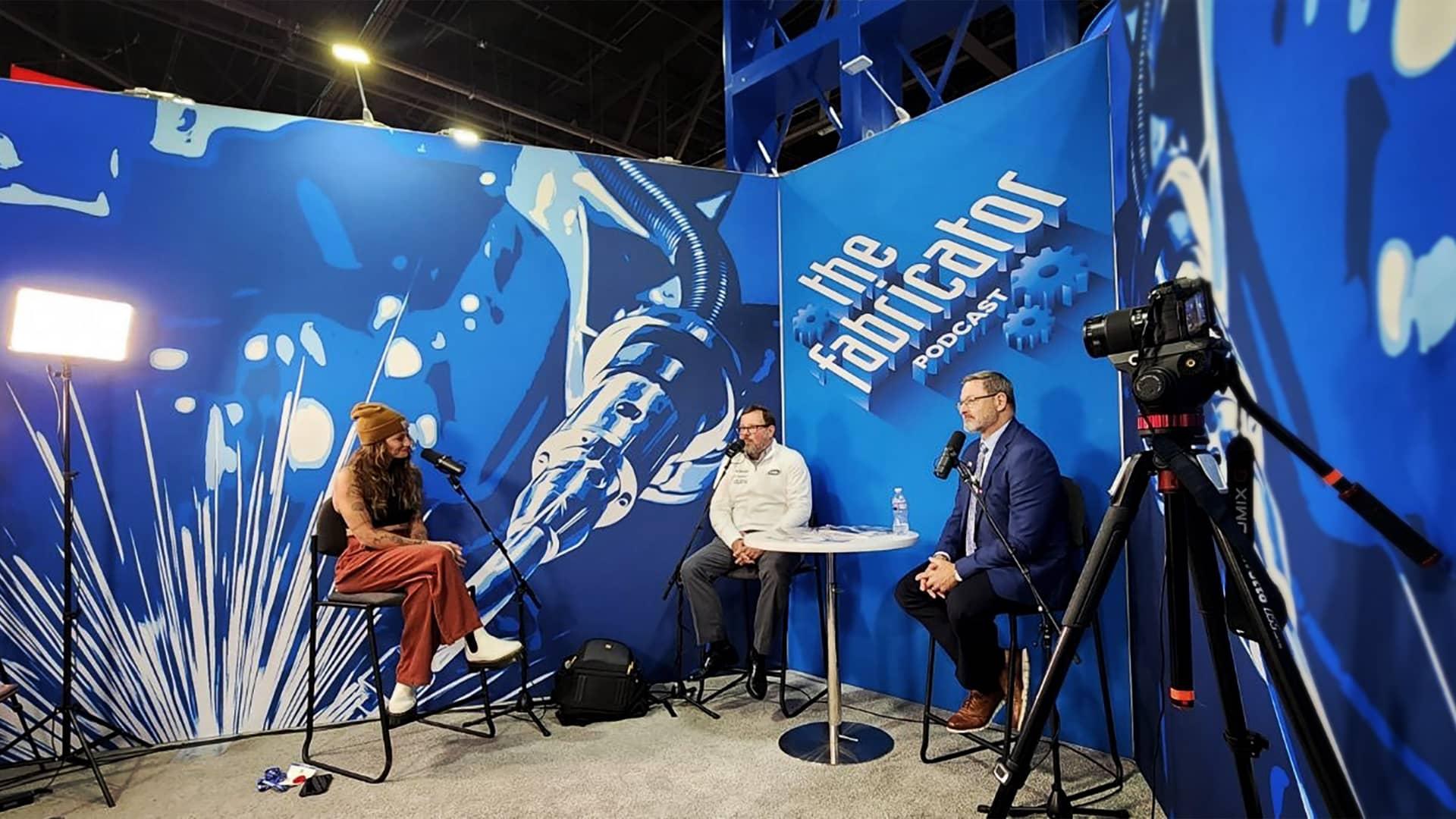
About This Podcast
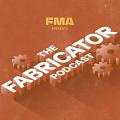
All Episodes
-
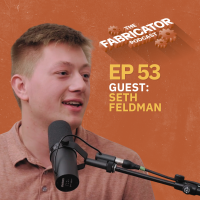 Ep. 053
Ep. 053 -
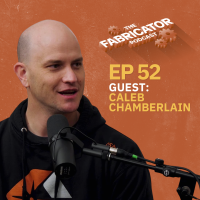 Ep. 052
Ep. 052 -
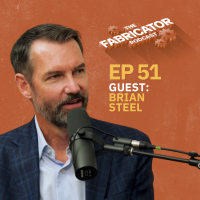 Ep. 051
Ep. 051 -
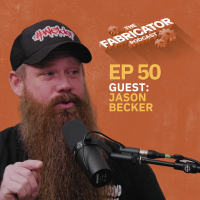 Ep. 050
Ep. 050 -
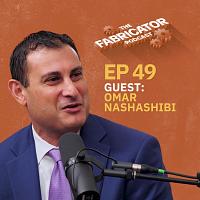 Ep. 049
Ep. 049 -
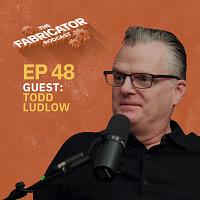 Ep. 048
Ep. 048 -
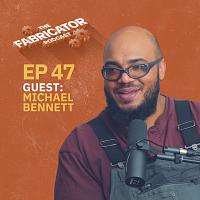 Ep. 047
Ep. 047 -
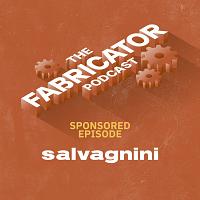 Bonus
Bonus -
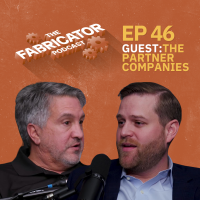 Ep. 046The shifting manufacturing landscape with The Partner Companies
Ep. 046The shifting manufacturing landscape with The Partner Companies -
 Ep. 045
Ep. 045 -
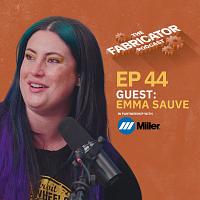 Ep. 044
Ep. 044 -
 Ep. 043
Ep. 043 -
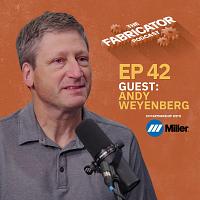 Ep. 042
Ep. 042 -
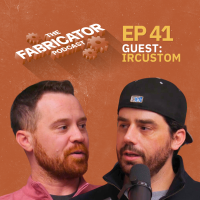 Ep. 041
Ep. 041 -
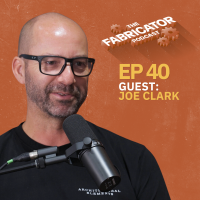 Ep. 040
Ep. 040 -
 Ep. 039
Ep. 039 -
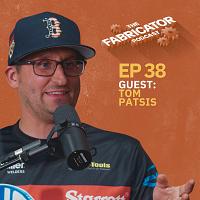 Ep. 038
Ep. 038 -
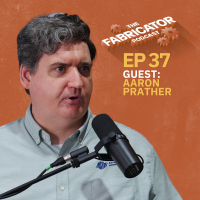 Ep. 037
Ep. 037 -
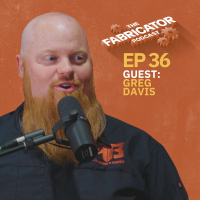 Ep. 036
Ep. 036 -
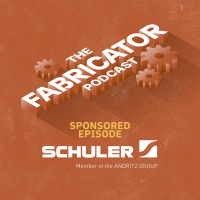 Bonus
Bonus -
 Ep. 035
Ep. 035 -
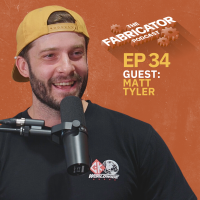 Ep. 034
Ep. 034 -
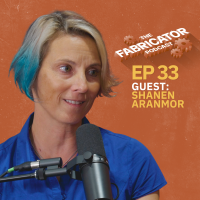 Ep. 033
Ep. 033 -
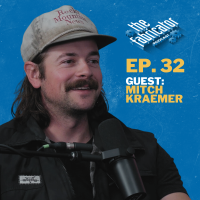 Ep. 032
Ep. 032 -
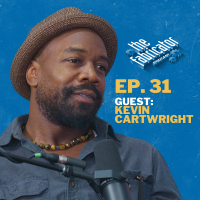 Ep. 031
Ep. 031
























